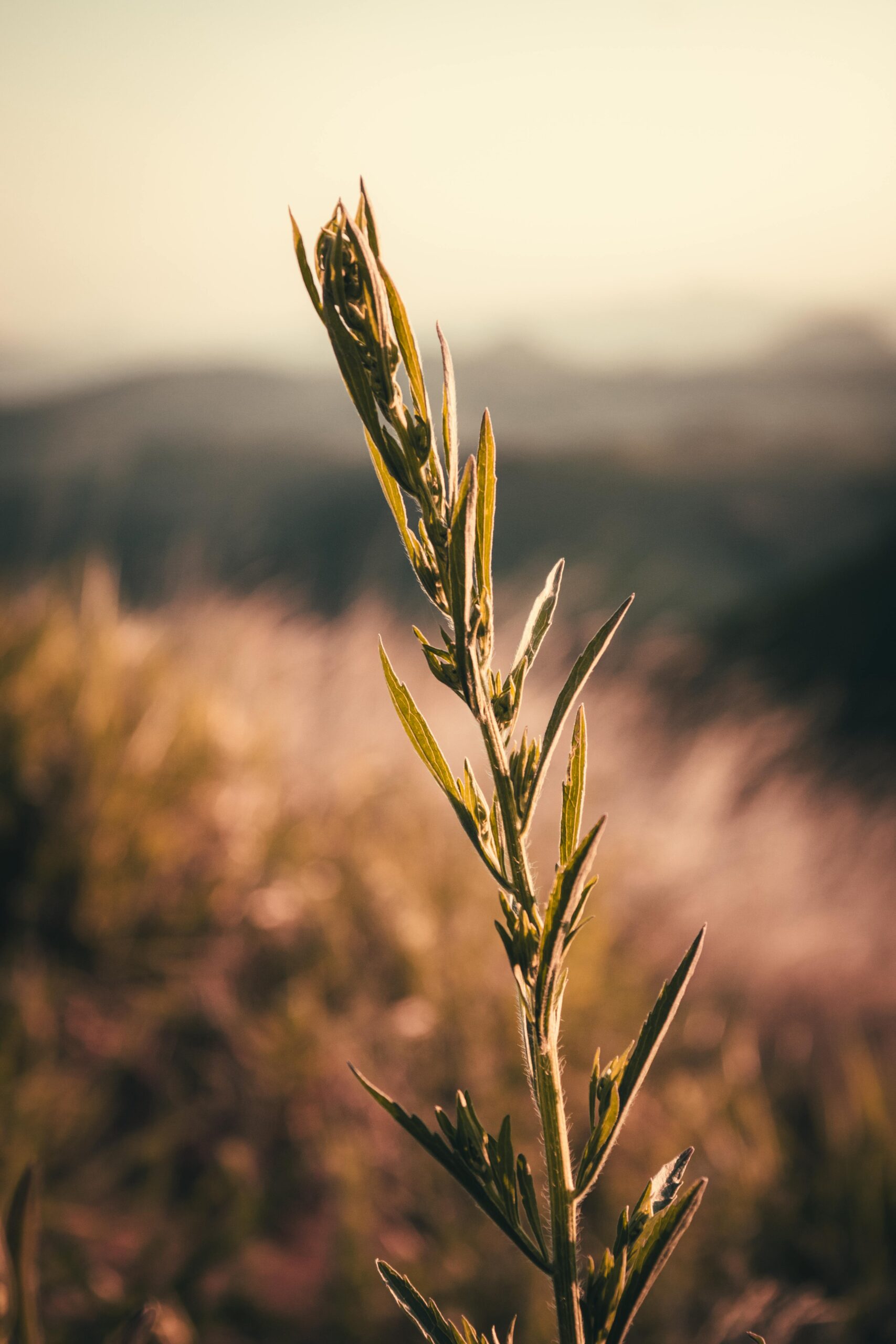Mugwort Benefits For Health & More!

Here at Maple Holistics, we aim to give some lesser-known plants and ingredients the spotlight they deserve! While mugwort may be something you’ve never heard of – or something you’ve mistaken to be an annoying weed in the past – we’re here to introduce you to its good side, and the benefits it can offer for your health and body. You won’t look at these ‘weeds’ the same way again!
What Is Mugwort? Where Does Mugwort Come From?

The herb is native to parts of Europe and Asia.
Despite its unsavory name (for some reason, the name ‘mugwort’ reminds me of an ugly witch), mugwort is actually a pleasing plant, which has both medicinal and culinary uses. In days gone by it was used to make beer (which was often enjoyed in a mug), hence the name of the herb. ‘Wort’, though it sounds like ‘wart’, actually meant ‘plant’ or herb’, back in the day. It’s native to Europe, but it’s been popular for years in many countries all over the world.
The Chinese used to use mugwort to encourage babies who were breech to turn the right way ‘round. It was also – and still is – used to flavor foods, such as rice, fish, and meat. In Medieval Europe (before the days of ‘Off!’), the herb was used as an insect repellent and to ward off wild animals. It’s also popular in Germany, Korea, and Japan, and is used to flavor a variety of traditional dishes.
Mugwort Health Benefits Explained
One of the main benefits that this plant has to offer is its ability to improve women’s health issues. It’s famous for regulating menstrual cycles and strengthening the uterus, and can also help to relieve menopause symptoms. By using this plant, early menopause may be prevented. Due to the warming effects that it has on the uterus, mugwort makes the uterus’ job of expelling the blood a lot easier, which gets rid of those painful cramps. It’s used to stimulate menstruation, so it shouldn’t be taken while pregnant, as it can cause a miscarriage.
Mugwort is also great for your digestive system. The plant is a natural diuretic, meaning that it helps your body to flush out the toxins regularly. It cleanses your kidneys and bladder, and can also make you sweat – which sounds gross, but is just another way that your body naturally rids itself of unhealthy toxins and excess fluid. It also helps ease other uncomfortable digestive issues like bloating and gas, and even more serious problems like stomach or bowel pain. Plus, the high Vitamin C content makes mugwort a great friend to your immune system, and can help fight against free radical damage.
Interestingly, it’s also thought to help balance chemicals in the brain, which may make it helpful for people suffering from epilepsy, or mental illness such as depression.
How To Make Mugwort Tea

Mugwort tea is a great way to enjoy the benefits of this plant.
Mugwort can be taken in a variety of ways, depending on the issue you are targeting. For example, its leaves can be used as they are to flavor, or even for use in a salad. They can also be placed in a bag under your pillow, which is said to spark vivid dreams (and help you remember those dreams afterward!). Still, possibly the easiest and most common way to take mugwort is in tea form. It’s really easy to make and can be taken as a natural treatment for fertility or digestive issues.
The recipe below makes enough tea for a cup. If you are making for more people, or think you’ll need more for yourself, feel free to multiply the recipe as needed.
Ingredients
1 cup water
1.5 teaspoons mugwort leaves, heaped
Method
- In a small saucepan, bring the water to the boil. Turn off the flame once the water has boiled.
- Add the leaves to the pot; cover. Allow to steep for approximately 10 minutes.
- Strain the tea and serve hot.
Because it’s only got two ingredients, this tea is extremely simple to make and takes hardly any time. Feel free to experiment, though, and add other herbs and spices to make it even more interesting and further increase the health benefits.
Mugwort Essential Oil Explained
You’ve probably heard of tea tree essential oil or lavender essential oil, and those are really awesome – in fact, we sell them, along with other essential oils, right here at Maple Holistics. But they aren’t the only essential oils out there – mugwort essential oil is pretty impressive, too!
Mugwort is very concentrated in its essential oil form. Use it with care. Too much of the stuff can have adverse reactions – it’s like they say, there can be too much of a good thing!
The tops of the plant’s dried flowers are used for manufacturing essential oil, through the steam distillation process.
As I mentioned earlier, mugwort is famous for its ability to improve women’s health issues. Diluting mugwort with a carrier oil like coconut, jojoba, or almond oil and rubbing it gently over your abdominal area can help stimulate your menstrual flow, and also help relieve uncomfortable period symptoms. It’s also good for general uterine health.
To use mugwort oil for epilepsy, or even just to calm you down when you’re feeling overly-stressed, dilute the oil with lavender essential oil (another oil which is known to calm the mind) and diffuse it in your room for around half an hour. Do not use mugwort oil for longer periods of time, as it has narcotic effects. Always dilute mugwort oil with another carrier oil.
You can also use the oil in a diffuser to boost your memory or concentration. Blend mugwort oil together with rosemary or sage essential oil, and place in a diffuser to help you get through a particularly challenging task.
Mugwort essential oil, like many essential oils, should not be ingested.
Mugwort Allergy Explained
“Ach-oo!” If you’re a hay fever sufferer, then despite its positives, you may want to avoid mugwort – especially in late summer. Mugwort is one of those plants that irritate the respiratory tract in people who are sensitive to pollen. Simply put, this means that if you’re allergic to it, mugwort can make you sneeze, cough, have asthma-like symptoms, and generally feel sorry for yourself. Not fun!
One way to determine whether or not you’re likely to have a mugwort allergy is to take stock of your existing allergies. Are you allergic to peanuts, kiwi, (water/)melons, and/or apples? Then you should probably be avoiding mugwort too, just to be on the safe side.
Conclusion
It may not be used for beer anymore, but mugwort is as useful as it ever has been! From tea to essential oil, to simply using it in its natural state, this plant has loads to offer for your health and palate. So next time you’re weeding the garden, keep an eye out for these beauties. You don’t want to be pulling up what could, in due time, end up being one of your favorite herbs or natural remedies!


